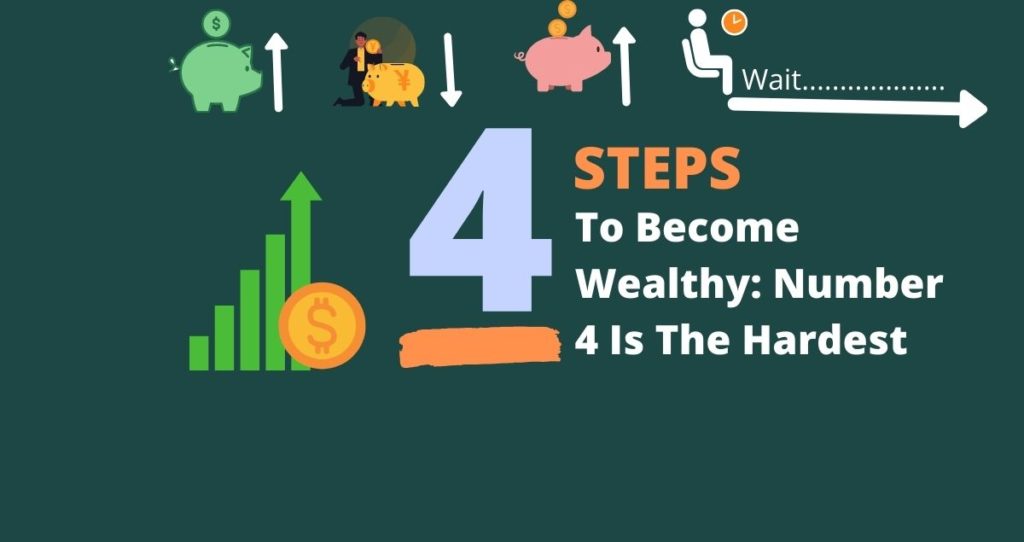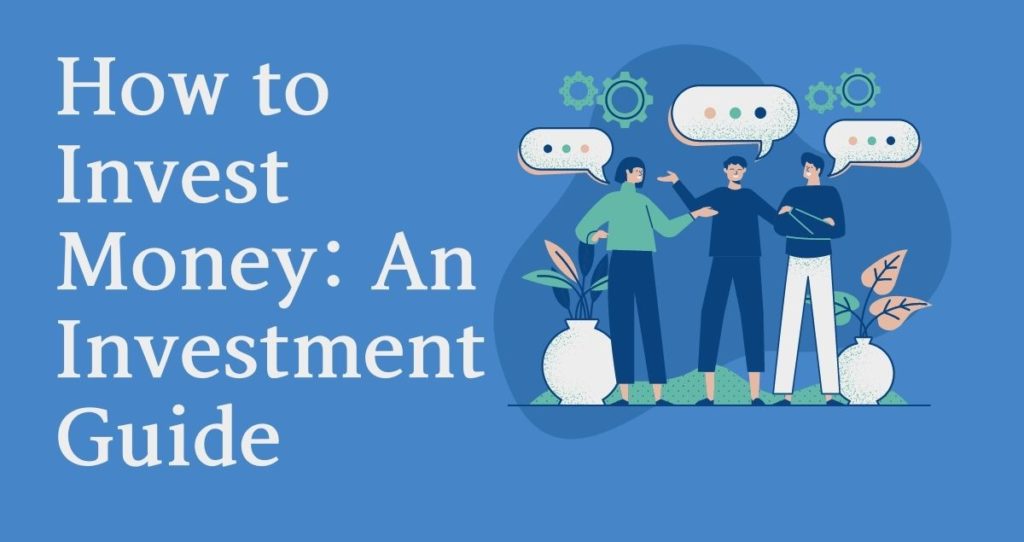Investing is a great way to increase your net worth and build wealth. With hundreds of ways to invest, however, it can be daunting to find the best investment for a single person. The good news is that being single gives you flexibility in terms of risk tolerance, investment options, and timeline.
For example, most married couples stay away from cryptocurrencies and small-cap stocks due to their underlying risks and their impact on their personal lives. If you are single, however, you might have a different approach to these kinds of investments.
Here are different ways to invest money for a single person and tips to maximize your return on investment.
1. Invest in real estate
If you are single and want to invest, check out real estate. Real estate is one of the best investments for a single person due to several reasons. With real estate, you get access to a constant cash flow, build equity in your properties, and get tax breaks. Additionally, real estate is a good investment for a single person because it helps you hedge against inflation as real estate tends to hold its value over time.
As a single person, for example, you can easily own and manage rental properties and allocate all your funds to buying more units to increase the size of your portfolio. If you are getting started with limited funds, house hacking can also be a great way to get started and it works well when you are single. Renting out a room is another good way to get started with real estate which is a strategy that allows you to lease extra space in your house. When you are single, these two options are easy to implement as you don’t have to worry about your kids, spouse, etc.
Related: How much home can I afford?
2. Invest in individual stocks
Another investment that is good for a single person is the stock market. The stock market can be an excellent place to increase wealth over the long term. As a single person, you might not need access to your funds regularly which can allow you to buy and hold your stocks for a very long time.
The stock market is a good investment for a single person because it yields more return compared to conventional investment options such as bonds, T-bills, and high-yield deposit accounts. You can also earn dividends and benefit greatly when the value of your stocks increases over time. Higher return, however, comes with high volatility which makes it harder to beat the market in the short term. Unless you are willing to buy a hold, the stock market can be risky.
Not everyone can handle volatility and most spouses can’t. Due to the high risks involved in the stock market, losing money could mean losing your entire family’s funds which could lead to not being able to feed your kids clothe them, or shelter them.
But, if you are single and have a high tolerance for volatility, then investing in stocks will be great for you. Even if your investments decline in value, you can always rely on dollar cost averaging and stay invested. But, if you were married, it could be hard to convince your spouse to buy more investments when you are already losing money.
You might also like: Dividend stocks: What are they and how to invest in them
3. Invest in Peer-to-Peer lending
If you like lending money for a high return, P2P lending can be a great way to invest money when you are single. What makes P2P lending an exclusive investment for a single person is that the risk could be higher due to the lack of guarantee. The more people you have to include in your decision-making, the lower the risk you will need to take. Your return can also be higher which makes them attractive investment options especially when you are trying to diversify your portfolio.
P2P lending allows you to lend money to a third party via a P2P lending platform. That is borrowers and lenders create accounts on peer-to-peer lending websites which allows them to lend each other money. P2P lending can potentially offer higher returns than traditional forms of investment. You essentially lend your money to individual borrowers and small businesses. In return, you get paid interest just like the traditional lending industry.
Related: 7 best peer-to-peer lending websites
4. Start a side business
Being single means that you have all the time in the world to yourself. Yes, you probably work one or two full-time jobs. But, you don’t bear the responsibility that comes with being in a relationship or marriage. You can easily choose to spend your time and money however you want. This flexibility allows you to start a business and have more chances to succeed compared to a married couple.
Yes, being a single person can increase your chances of business success. You can work 24/7 and put all your energy and savings into the business without worrying about putting your family in jeopardy. That is why starting a business is one of the best investments for a single person.
In addition, a business is a great investment for a single person as it allows you to be in control of your schedule and earnings for the short and long term. You can make your schedule, take vacation whenever you want, and have the potential to earn unlimited income.
You might like: 8 reasons why competition is good for business
5. Invest in stock funds (Mutual Funds, Index funds, and ETFs)
Stock funds come in many categories but the most common ones are mutual funds, Index funds, and exchange-traded funds(ETFs).
A mutual fund pools money from many investors to purchase a diversified portfolio of stocks, bonds, or other securities. It’s a good investment option for individuals who don’t want to put all their eggs in one basket. Index funds are funds that track a particular index such as S&P 500. Exchange-traded funds, on the other hand, are funds that are traded on exchange just like normal stocks.
What makes these funds the best investment for a single person is that they experience less volatility compared to individual stocks but also come with relatively higher returns. Mutual funds are also good when you want to diversify your portfolio. For example, your fund might invest in stocks and bonds which minimizes the volatility of your portfolio.
On the other hand, buying an index fund is like buying all stocks in that fund. This is a perfect way to safeguard your money. For example, if one stock in the fund goes to $0 your portfolio will not decline that much because you will still have dozens of other stocks in the fund.
6. Invest in cryptocurrency
Many people consider cryptocurrency as highly volatile assets but not investments. This is true because crypto is one of the highly volatile investment products on the market and the risk is exponential. This means that if you are married or not single, it might be harder to invest your funds into crypto as the risk of losing those funds is higher. But, if you are single and can afford to lose some of your funds, putting a small fraction of your money into crypto might not do great harm.
While it is more risky to invest in crypto than some of the other investment options, it also has the potential for very high returns. Cryptocurrencies, such as Bitcoin and Ethereum have become a popular investment option for both institutional and retail investors.
7. Open a high-yield savings account
One of the best investments for a single person is opening a high-yield savings account. High-yield savings accounts are usually offered by online banks, credit unions, and similar institutions. A high-yield savings account is safe, low-risk, and comes with a much higher interest yield compared to traditional savings accounts. Some savings accounts come with rates that are as high as 5% or more which is more than 10 times the average return on investment from traditional savings accounts.
Related: High-yield savings account vs investing: Which one is better?
8. Invest in your education
Investing in your education or learning a new skill is the best investment you will make as a single person. Learning a new skill can lead to new career paths and increase your earning potential. The world is constantly changing and what you know today might not be relevant tomorrow. That is why investing in your education improves your adaptability and increases your chances of staying employed longer with a higher pay rate than your peers.
You might also like: How to secure your financial future after landing a job?
9. Invest in retirement plans
If you are looking for the best investment for a single person, you are going to like retirement savings. Many people don’t know much about retirement savings and all the benefits that come with them. The truth is that saving for retirement can build you wealth much faster than any other option you can choose especially if you are single.
To take all the benefits of retirement savings, contribute to your employer retirement benefits such as 401(k). With this plan, you can contribute as much as $22,500 in 2023 and $23,000 in 2024. Your employer might also match your contributions up to a certain percentage which becomes free money.
Another benefit of investing in retirement accounts is that you get direct tax benefits and can grow your wealth on a tax-deferred basis. To maximize your retirement savings, also open an IRA and contribute the maximum allowed which is $6,500 for 2023. That fact that you are single, you can easily max these accounts without causing major disruptions in your finances or lifestyle.
How much can you make with $100K in the stock market?
When I first started investing, I used to wonder how much return I could make with $100k invested in the stock market or if $100K was enough for me to make a decent income. What I learned throughout my experience is that the money you can make in the stock market from $100,000 is highly variable and depends on several factors.
These include the specific stocks invested in, the timing of the investments, market conditions, and investment strategy. Assuming that you have invested in the entire stock market, you should expect to make an average of about 10% per year which is the average yearly return from the S&P 500, according to SmartAsset.
However, this is just an average, and actual returns could be much higher or much lower depending on economic performance. High-risk investments could result in significant gains, but they could also lead to substantial losses. To maximize your losses when investing in stocks, stick to long-term investing.
How much money do I need to invest to make $10,00 a month?
The amount of money you need to invest to make $1000 a month depends on several factors, such as the type of investment you’re making, the return rate of that investment, and the period of your investment. For example, if you’re investing in a savings account with an annual interest rate of 1%, you would need to invest around $1,200,000 to generate $1,000 a month.
However, if you’re investing in the stock market, which historically has an average return rate of 10% per year, you would need to invest approximately $120,000 to make $1,000 a month.
For real estate investment or a business venture, the amount needed can greatly vary and could be significantly less if you can generate a high monthly profit. However, these types of investments might take a long time to reach a $1,000 net return and may also come with higher risk.
How to invest $100 to make $1,000?
If you only have $100, it could take a long time to get it to $1,000. So, conventional ways of investing might not be your best shot to realize such a return. For example, if you invest $100 with a 10% ROI in the stock market, you will make $10 at the end of the year with a total account balance of $110. At this rate, it will take almost forever to get to $1,000. All you need is a different approach.
Instead of buying conventional investments with $100 hoping to turn it into $1,000, use that $100 to develop a product that can be scaled up to make more money. Buy using $100 as your starting capital and keeping your expenses relatively small, sales from your products can easily make you $1,000 or more.
Here are a few steps to invest $100 to make $1,000.
- Identify a Profitable Niche: Start by conducting market research to identify a highly profitable niche undersaturated or in high demand.
- Develop or Source a Product/Service. Either develop a product/service or source one that can solve the identified problem. You can start Amazon FBA, start your own store, or start a blog. You can also flag other products for higher margins.
- Market your product. Invest part of the $100 in marketing your product. It could be through social media ads, email marketing, content marketing, etc.
- Reinvest Your Profits. Once you start making profits, don’t spend all of it. Reinvest a portion back into the business for scalability. You could improve your products, increase your marketing efforts, or expand your product line.
Related: 13 steps to turn a hobby into a successful business
How to invest when you’re broke?
Investing when you’re broke might seem impossible, but it can be accomplished if you use the right strategies. If you are living paycheck to paycheck or have little money to invest, here are a few tips to start investing.
- Save first. Regardless of your current financial situation, prioritize savings. Even if it’s a small amount, regular savings can accumulate over time. Consider putting a certain percentage of your paycheck, such as 10%, into a savings account.
- Pay off your debts. Current loan rates and credit card balances are much higher than most investments’ ROI. So, it makes sense to pay off your debt first if you are investing when you are broke.
- Create an emergency fund. Having a financial cushion is always a good idea. An emergency fund protects you in case of a job loss, unexpected medical bills, accident, etc.
- Start small. Many people believe that investing requires a substantial amount of money. However, numerous investment platforms and apps allow you to invest with as little as $1 through fractional shares where you can buy a portion of a stock or fund instead of the full share.
- Automated investments. Consider automated investments where a certain amount is automatically deducted from your account and invested each month.
- Invest in education. Knowledge is an invaluable investment. Learning more about personal finance, budgeting, and investing can equip you with the skills needed to manage and grow your money more effectively.
- Cut down expenses. Try to reduce unnecessary expenses. This might include monthly subscriptions you don’t use, dining out, or discretionary spending. The money saved can then be invested.
- Boost your income. You can use your skills or hobbies to generate extra income. Some of the side hustles you can do include freelance, creating an online course, or starting a small business in your free time. The additional income can be directed towards your investments.
How to invest when you are scared?
If you are scared of investing, I can’t blame you. With dozens of investment categories and thousands of different investment types, it is easier to pick the wrong investment and lose money in the market. Being scared, however, does not mean you cannot invest and make a profit.
Here are tips to invest when you are scared.
- Start with income-fixed assets. If you are afraid of investing, start with fixed-income assets. These are made of bonds, T-bills, and deposit accounts such as high-yield savings accounts, CDs, MMAs, etc. Deposit accounts usually come with FDIC insurance up to $250,000 per deposit and per account category.
- Later, upgrade to an income portfolio. After getting used to earning money, upgrade to an income portfolio. This is where you include equity in your investment strategies. With an income portfolio, 20% of your portfolio should be equities(stocks and stock funds). Later, you can upgrade to a conservative portfolio, moderate portfolio, and growth portfolio.
- Diversify your investment. Diversification is a perfect way to minimize your risk especially when you are scared.
- Use a financial advisor. An advisor will help you make the right investment decision and minimize your risk.
- Invest in a target retirement fund. These are funds of pre-mix assets that are designed based on estimated retirement date and risk. Since they are already diversified, your risk is usually minimal.
- Avoid risky investments. Risky investments include penny stocks and small-cap stocks, cryptocurrencies, foreign stocks, etc.
- Buy real estate. Real estate is a great investment as it retains value, and appreciates over time, and you can build equity in your properties.
- Improve your investment skills. Most people are afraid of investing because they don’t understand how markets work. You can tackle this issue by learning as much as you can about investing.
Related: 53 Personal Finance Terms You Need to Know
What is the safest investment?
Risk management is one of the key points to focus on when investing. Even if you might be single and have no bills to pay or someone to report to, managing your risk is still a great way to maximize your ROI and grow wealth. The best way to manage your risk is usually by picking less risky investments.
The safest investment is often considered to be in diverse, low-cost index funds. This strategy spreads your risk across a broad spectrum of companies and sectors which minimizes the impact on your portfolio if one investment performs poorly. Additionally, index funds typically have lower fees than managed funds, meaning they can offer better returns over the long term.
Fixed-income assets such as bonds and high-yield deposit accounts are also considered safe as they pay a fixed interest. Additionally, your money might be protected through FDIC insurance up to $250,000 when you open an account with an FDIC insurance bank or credit union.
Keep in mind that choosing less risk when investing also minimizes your return on investments. The lesser the risk, the lower your ROI, and vice-versa. It is all about understanding your risk tolerance and investing accordingly.








